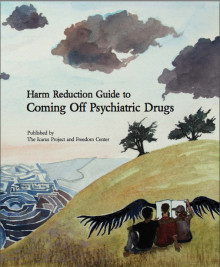 Here is an excellent article about recovery from addiction by Chris Clements, social affairs correspondent for BBC Scotland.
Here is an excellent article about recovery from addiction by Chris Clements, social affairs correspondent for BBC Scotland.
Andrew is in recovery after a decade of alcoholism.
Ten years ago, he suffered a mental breakdown and his drinking spiralled.
It led to the loss of a career in finance and the breakdown of family relationships.
But the 62-year-old told BBC Scotland that his darkest point came last year.
“In June, my partner died and my drinking just got totally out of control,” he said. “I couldn’t function as a human being. I had to be cared for.”

 I’ve just been reading another
I’ve just been reading another  Birthday greetings to my good friend Kevan Martin. I celebrated Kevan’s 60th Birthday last year with a blog post; it was the same day that I launched my eBook
Birthday greetings to my good friend Kevan Martin. I celebrated Kevan’s 60th Birthday last year with a blog post; it was the same day that I launched my eBook  I love Dr David McCartney’s blogs. He writes so well about issues that really matter. He’s also a great guy who cares passionately about addiction recovery and recovering people. And he’s someone I always enjoy visiting when I am in the UK. [Can’t wait until the next visit!] Anyway, here’s David’s
I love Dr David McCartney’s blogs. He writes so well about issues that really matter. He’s also a great guy who cares passionately about addiction recovery and recovering people. And he’s someone I always enjoy visiting when I am in the UK. [Can’t wait until the next visit!] Anyway, here’s David’s  Here is a post from one of my favourite bloggers on our online recovery community Wired In To Recovery, which dates back to April 2009.
Here is a post from one of my favourite bloggers on our online recovery community Wired In To Recovery, which dates back to April 2009. One of the things I will be doing over the coming months is to ‘bring back’ some of the classic blogs from our online community
One of the things I will be doing over the coming months is to ‘bring back’ some of the classic blogs from our online community 





